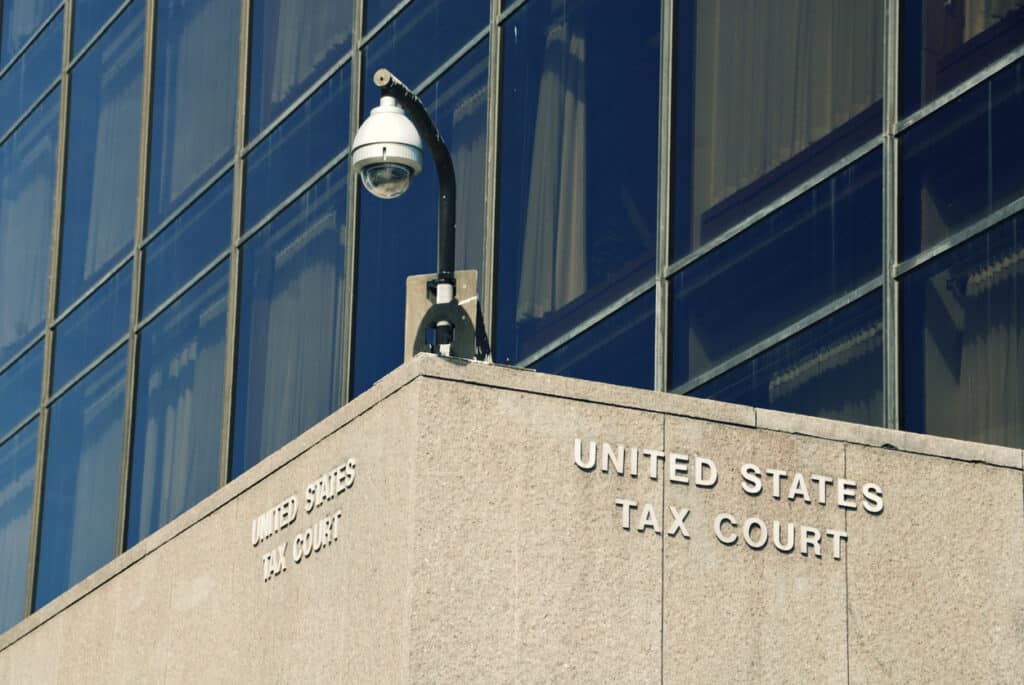In a new amicus brief filed with the United States Court of Appeals for the D.C. Circuit, the National Whistleblower Center (NWC) argues that the U.S. Tax Court erred in its ruling on a Internal Revenue Service (IRS) whistleblower award case because it failed to provide a de novo review of the case. According to NWC, Congress clearly intended for de novo review of whistleblower award claims.
The amicus brief was filed in Lissack v. Commissioner. Michael Lissack blew the whistle on improper tax deductions made by a condominium development corporation. His disclosure led to the collection of $60 million in unpaid taxes. The IRS Whistleblower Office denied Lissack’s whistleblower award claim on the basis that his disclosure did not allege the specific violations which the IRS took action on. Lissack appealed the denial to the Tax Court, which upheld the denial.
However, in reviewing Lissack’s appeal, the Tax Court applied an “arbitrary and capricious” standard instead of a de novo review of the case. This means that instead of giving a fresh look at the facts of the case, the Tax Court narrowly reviewed whether or not the IRS Whistleblower Office’s decision was arbitrary or capricious or otherwise an abuse of discretion.
According to NWC’s brief, the D.C. Circuit should overturn the Tax Court’s ruling and have Lissack’s case reviewed with a de novo standard of review. NWC argues that Congress clearly intended for the de novo review of whistleblower award cases and that this standard was improperly stripped in the 2018 case Kasper v. Commissioner.
“A review of the statute through its legislative history and relevant context leaves no doubt that the meaning of the words in the statute’s text when adopted by Congress meant to provide for de novo review for [whistleblower award] claims,” the brief states. “It is certainly not an overstatement to say that the future success of the IRS Whistleblower Program is in the hands of this Court,” the brief further claims. “To allow the IRS to have full discretion over the decision-making process for rewarding these whistleblowers without appropriate judicial review would result in an inevitable chilling effect on the IRS Whistleblower Program.”
NWC’s brief was written by two leading whistleblower attorneys, Stephen M. Kohn of Kohn, Kohn & Colapinto and Dean Zerbe of Zerbe, Miller, Fingeret, Frank & Jadav. Together Kohn and Zerbe have represented numerous IRS whistleblowers, including Bradley Birkenfeld, the former UBS banker who blew the whistle on Swiss banking misconduct and received a record $104 million award. Zerbe also served as Senior Counsel and Tax Counsel for Senator Charles Grassley (R-IA) during the time when Grassley introduced the law which modernized the IRS Whistleblower Program.
“The Lissack case before the D.C. Circuit is of great importance to tax whistleblowers and their representatives because it is the first time that the Appellate court will review the Tax Court’s decision in Kasper which established a standard of review of arbitrary and capricious – changing from the long-standing (unstated) practice of de novo review in tax whistleblower cases,” said Zerbe. “The arbitrary and capricious standard has completely undermined the confidence of tax whistleblowers that they can get a fair hearing – and damaged the tax whistleblower program.”
“NWC hopes that the D.C. Circuit will take a fresh look at the standard of review and the Tax Court’s decision in Kasper – and recognize that a close reading of the statute, legislative history and the context of the statute support a finding for de novo review,” added Zerbe. “Whistleblowers will be lighting candles hoping for a good result from the D.C. Circuit.”
“The IRS Whistleblower Program is a critical venue to protect taxpayers and fight transnational crime,” said NWC Executive Director Siri Nelson. “Now more than ever these whistleblowers need fair standards, robust rewards, and actionable protections. De novo review is needed to provide the certainty and independent review to bolster whistleblower confidence. Without certainty, the tax program is destined to lose whistleblowers who otherwise would have proven incredibly helpful. NWC is proud to submit this important brief and urges the court to take action to help keep whistleblowers coming forward to the IRS and other programs like it.”
The issue of de novo review of tax whistleblower award claims is also addressed by the bipartisan IRS Whistleblower Program Improvement Act of 2021, introduced by Senators Grassley and Ron Wyden (D-OR). The bill clarifies that the Tax Court should apply a de novo standard of review. It is widely supported by whistleblower advocates.
Read:
NWC Submits Amicus Brief in D.C. Circuit Whistleblower Case
Congress Intended Tax Whistleblowers to Enjoy De Novo Review
